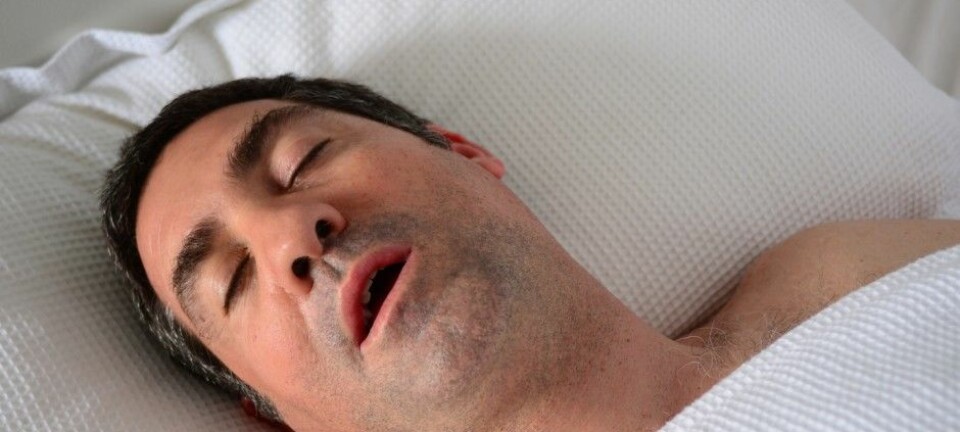
Should teens’ school day start later?
A longer morning in bed can make teens more attentive in school. "We should shift the start of the morning for them," says one Swedish sleep researcher.
Swedish, American and Norwegian studies concur: starting school later in the morning helps many teenagers pay better attention in their first classes of the day.
According to John Axelsson in an article on the Swedish website forskning.se, “A clear scientific basis exists for the benefits of later school start times for many adolescents.” Axelsson is a professor of sleep science at Stockholm University.
He points to American studies that show increased attention spans and ability to concentrate, a quieter mood in the classroom, and better grades.
A Norwegian study, where Norwegian grade ten pupils began one hour later on Mondays, suggests similar results.
Get tired later
Insufficient sleep affects concentration, mood and learning. In addition, sleep and mental health are closely linked, and they can both reinforce each other.
Norwegian youth go to bed late and sleep two hours less on weekday nights than they themselves think they need, according to a study from 2013 of youth in the Norwegian county, Hordaland.
Mari Hysing at Uni Research Health in Bergen is one of the researchers who conducted this study four years ago.
Several reasons may contribute to adolescents’ late bedtimes, including social media, evening sports training and late weekend mornings.
However, biology also plays a role, says Hysing.
"Teenagers take longer to fall asleep than adults. They sleep significantly less than they feel they need to, and there are clearly some biological factors in this," she says.
Marianne Ors, a consultant in the neurophysiological clinic at Skåne University Hospital in Sweden tells forskning.se that the time we feel ready for bed changes throughout our life.
"It's actually harder for a teenager to go to bed than it is for an elderly person," she says.
More alert and better rested
How would a later school start time affect adolescents?
Researchers at the University of Bergen examined how a later start on Mondays worked for grade ten pupils at a Norwegian school. They compared results with another school where students started at 8.30 every day.
The test school started at 09.30 every Monday and 08.30 the rest of the weekdays for two months.
The study concluded that a later start on Mondays allowed pupils to sleep more and helped their attentiveness for the first several class periods.
Although researchers found benefits by shifting the start of the school day, they could not say for sure whether the benefits lasted the whole week.
Nor did the researchers advise introducing a shifted first period at the secondary school without further study. They believe the issue should be researched for a longer time with more students – and that researchers should also study other strategies to address poor sleep habits among adolescents.
Disadvantages
One problem that emerges with a first period delay in American research is that after a while, teens seem to be staying up later whenever they start school later, according to forskning.se.
Whether or not to start school later in the morning is a big and difficult question, says Ors.
"American studies seem to be in favour of schools starting later in the morning. But then school ends later in the day, and teenagers perform less well in the afternoon,” she says.
And, Ors points out, not all teenagers have trouble getting up in the morning.
Do we facilitate sleep well enough?
Hysing has not herself researched later morning school starts, but she has researched sleep difficulties among youth.
She believes adults can do a number of things to facilitate better and more sleep for adolescents. For example, many teens now have to get up early to travel to secondary schools far away from where they live.
"For starters, they shouldn’t have to get up earlier for secondary school than they do for primary school," says Hysing.
She also believes that there is often too much day-to-day variation in when the school day begins.
"It's unfortunate, because we know a consistent rhythm is essential for good sleep habits, so this is an important point to take into account,” Hysing says.
She also observes that many pupils have midnight deadlines for handing in assignments electronically, and late sports training – while also being told that they should go to bed early," Hysing tells forskning.no.
Parent participation helps
The study Hysing conducted with researchers from the Norwegian Institute of Public Health and the University of Bergen in 2013 suggests that young people aged 16-19 sleep an average of six and a half hours on weeknights.
The teens also reported that they felt they really need eight and a half hours of sleep a night. Eight to nine hours is the recommended amount of sleep for adolescents.
Some young people may think they don’t need to sleep because they don’t feel tired when they go to bed, Hysing says.
"What can help is if teens realize that it takes longer to fall asleep after puberty. We also know that it's important for parents to communicate with them about bedtime. Most studies confirm that when the parents participate in deciding on bedtimes, teens get more sleep,” she says.
-------------------------------------
Read the Norwegian version of this article at forskning.no







